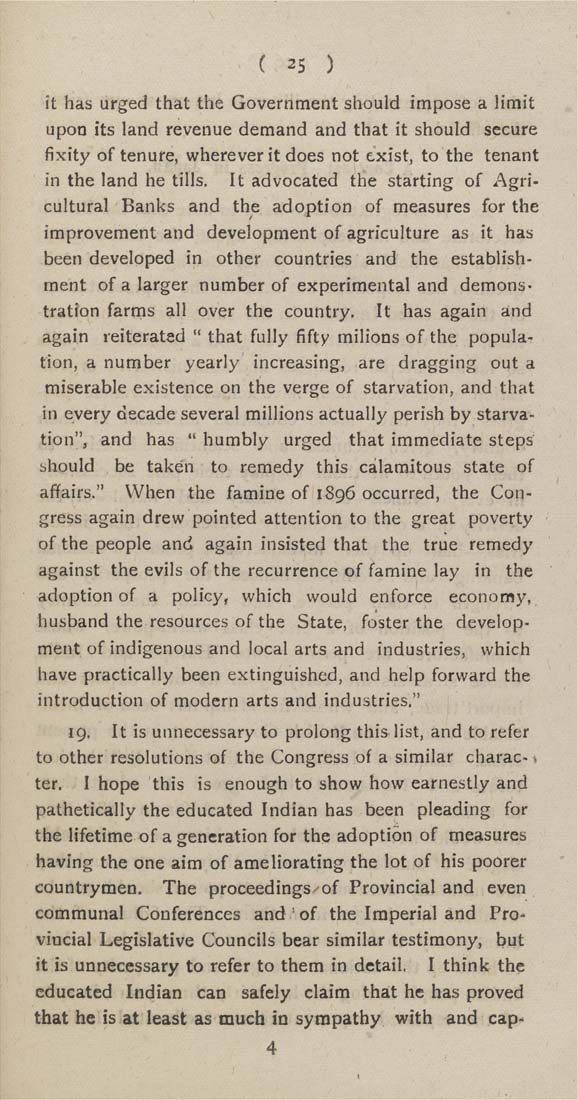( 25 )
it has urged that the Government should impose a limit
upon its land revenue demand and that it should secure
fixity of tenure, wherever it does not exist, to the tenant
in the land he tills. It advocated the starting of Agri¬
cultural Banks and the adoption of measures for the
improvement and development of agriculture as it has
been developed in other countries and the establish¬
ment of a larger number of experimental and demons¬
tration farrns all over the country. It has again and
again reiterated " that fully fifty milions of the popula¬
tion, a number yearly increasing, are dragging out a
miserable existence on the verge of starvation, and that
in every decade several millions actually perish by starva¬
tion", and has " humbly urged that immediate steps
bhould be taken to remedy this calamitous state of
affairs." When the famine of 1896 occurred, the Con¬
gress again drew pointed attention to the great poverty
of the people and again insisted that the true remedy
against the evils of the recurrence of famine lay in the
adoption of a policy, which would enforce economy,
husband the resources of the State, foster the develop¬
ment of indigenous and local arts and industries, which
have practically been extinguished, and help forward the
introduction of modern arts and industries."
19. It is unnecessary to prolong this list, and to refer
to other resolutions of the Congress of a similar charac- ^
ter. I hope this is enough to show how earnestly and
pathetically the educated Indian has been pleading for
the lifetime of a generation for the adoption of measures
having the one aim of ameliorating the lot of his poorer
countrymen. The proceedings of Provincial and even
communal Conferences and '■ of the Imperial and Pro¬
vincial Legislative Councils bear similar testimony, but
it is unnecessary to refer to them in detail, I think the
educated Indian can safely claim that he has proved
that he is at least as much in sympathy with and cap-
4
|








